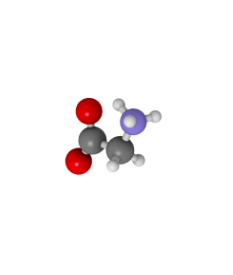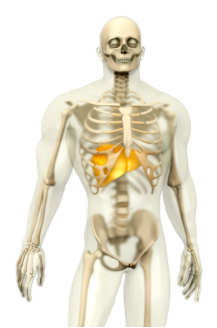Eating for Supercompensation – Ideal Post-MI40-X
So you’ve dieted hard, and trained even harder. Your mind and your body have been battered and depleted from the ...

So you’ve dieted hard, and trained even harder. Your mind and your body have been battered and depleted from the ...
Picture yourself cranking out a heavy set of squats, your training partner counting down as rep number 20 of an ...
In case you missed it, catch Part 1 here. Now, during my prep for this meet I had the best training ...
Question: “Is there an optimal amount of Time Under Tension (TUT) to shoot for each set?” When trying to maximize ...
Energy expenditure can vary greatly from large muscle groups to small muscle groups. This is evident easily by the poundage ...
When starting a diet, have you ever wondered why exactly hunger and cravings suddenly sky rocket? Obviously a reduced food ...
Bloated stomach? Endless flatulence? Wicked diarrhoea? Believe it or not, you don’t have to live with these symptoms. Ever wonder ...
You have also likely heard of ‘HMB’ which is a derivative of leucine. In fact the above pathway requires that ...
Let’s face it – seeking out the right information can be confusing whether you are a bodybuilder or just an ...
Bodybuilders, and indeed all athletes looking to secure the performance edge would have at least a passing knowledge of the ...
If you look on the back of a vitamin or food package you will see that ingredients are rated as ...
By Roland Pankewich If you have read the first installment (Read Part 1 Here) you were introduced to the idea ...
 Glycine is the smallest of the 22 common amino acids — but despite its small stature, it packs a powerful punch. Glycine is a non-essential amino used to build new proteins, construct DNA and RNA, synthesize collagen (a non-contractile fiber that comprises the connective tissue that literally holds us together) and act as a neurotransmitter in the brain. Glycine also plays a role in digestive health by promoting the production of bile and balancing the acid-base balance in the digestive tract to ensure the optimal uptake of nutrients. What’s more, glycine is required for the biosynthesis of heme, a major constituent of the oxygen-transport molecule hemoglobin – found in red blood cells. Through its role in glutathione production, glycine provides indirect immune and antioxidant benefits as well. Perhaps the most striking property of glycine, and the one that makes glycine so unique is its small size. This property not only allows glycine to go where others can’t, but it also provides structural attributes that make it vital to the construction of many different proteins.[2] Clearly, to call glycine versatile would be an understatement, and we haven’t even begun to shed light on its physique and performance enhancing benefits.
Glycine is the smallest of the 22 common amino acids — but despite its small stature, it packs a powerful punch. Glycine is a non-essential amino used to build new proteins, construct DNA and RNA, synthesize collagen (a non-contractile fiber that comprises the connective tissue that literally holds us together) and act as a neurotransmitter in the brain. Glycine also plays a role in digestive health by promoting the production of bile and balancing the acid-base balance in the digestive tract to ensure the optimal uptake of nutrients. What’s more, glycine is required for the biosynthesis of heme, a major constituent of the oxygen-transport molecule hemoglobin – found in red blood cells. Through its role in glutathione production, glycine provides indirect immune and antioxidant benefits as well. Perhaps the most striking property of glycine, and the one that makes glycine so unique is its small size. This property not only allows glycine to go where others can’t, but it also provides structural attributes that make it vital to the construction of many different proteins.[2] Clearly, to call glycine versatile would be an understatement, and we haven’t even begun to shed light on its physique and performance enhancing benefits.
A Performance Enhancer
Good news for bodybuilders is glycine’s ability to increase muscle strength and growth. Though glycine boosts muscle mass on many levels – for example by improving digestion, immunefunctioning, and sleep – it does so primarily through its growth hormone boosting capabilities, role in creatine synthesis, and effects on blood sugar.
Growth Hormone Secretagogue
 Glycine is known to be a powerful stimulator of growth hormone.[10] One study found that when 19 average non-obese subjects consumed 6.75g of glycine orally, each experienced a growth hormone increase 3-4 times that of baseline levels.[5] In another experiment, a lone subject was given 30,000mg (30g!) of glycine in an attempt to assess growth hormone production.[9] The result: a 1000% increase in growth hormone levels. Now, before you ditch your whey for heaping scoops of pure glycine, know that a dosage of this size could lead to health problems in the long run, so stick to doses that are known to be safe for long term use.
Glycine is known to be a powerful stimulator of growth hormone.[10] One study found that when 19 average non-obese subjects consumed 6.75g of glycine orally, each experienced a growth hormone increase 3-4 times that of baseline levels.[5] In another experiment, a lone subject was given 30,000mg (30g!) of glycine in an attempt to assess growth hormone production.[9] The result: a 1000% increase in growth hormone levels. Now, before you ditch your whey for heaping scoops of pure glycine, know that a dosage of this size could lead to health problems in the long run, so stick to doses that are known to be safe for long term use.
Creatine Synthesis
As one of three amino acids used to form creatine, glycine, along with arginine and methionine, indirectly increases performance by increasing energy availability, enhancing muscle volume, and improving muscle protein synthesis.[3][7]
Insulin Potentiator
As a glucogenic amino acid, glycine stimulates the secretion of insulin when digested. Thus glycine, may be able to help rapidly reduce blood sugar levels when consumed alongside carbohydrates, by potentiating the effects of insulin.[12] In practice, this may lead to more stable energy, better glycogen retention, and as a result, increased performance.
Moving away from the technical details, several studies have shown measurable performance increases from glycine supplementation. During an acute, exhaustive high-intensity anaerobic isokinetic exercise, one study found that by taking a combination of glycine and arginine, a group of subjects was able to increase their mean resistance to fatigue by up to 28% over the  control. [11] Another study reported that a sample of both females and males, by consuming 5-12 grams of glycine daily, was able to increase their cycle ergometer workloads by 22% and 32% respectively.[3]
control. [11] Another study reported that a sample of both females and males, by consuming 5-12 grams of glycine daily, was able to increase their cycle ergometer workloads by 22% and 32% respectively.[3]
Whether through blood sugar regulation, creatine synthesis, growth hormone increases, or a combination of the three, glycine can surely boost training performance.
A Detoxifier
All humans are walking repositories for a wide range of toxic substances, whether they are natural byproducts of metabolism, or toxins we absorb from the world around us. Aside from being an integral component of glutathione, one of our body’s most powerful antioxidants, glycine also indepently aids in detoxification by playing an important role in phase II liver detox — a predominant detoxification pathway for humans.[9]
Sleep Aid
 An inhibitory neurotransmitter of the central nervous system, glycine prevents excessive excitation in the brain. Three grams of glycine taken before bed has been shown to promote restful sleep and reduce fatigue the following day.[4] Several studies have shown that glycine’s effects are not just subjective either – there is measurable improvements in cognitive performance in those who supplement with glycine before sleep. One of the unqiue benefits to glycine supplementation is that it does not alter sleep architecture. This means that the various stages of sleep, all of which are necessary for healthy recuperation, are not disturbed by glycine supplementation.[13]
An inhibitory neurotransmitter of the central nervous system, glycine prevents excessive excitation in the brain. Three grams of glycine taken before bed has been shown to promote restful sleep and reduce fatigue the following day.[4] Several studies have shown that glycine’s effects are not just subjective either – there is measurable improvements in cognitive performance in those who supplement with glycine before sleep. One of the unqiue benefits to glycine supplementation is that it does not alter sleep architecture. This means that the various stages of sleep, all of which are necessary for healthy recuperation, are not disturbed by glycine supplementation.[13]
Boost Your Glycine, Boost Your Gains
The human body will only build maximum amounts of muscle when all systems are functioning optimally and when all of the conditions for muscle growth are in place. Not the sexiest amino on the block, glycine is nevertheless one of great importance. Like many other aminos, glycine is found naturally in animal products such as beef, chicken, fish, and dairy.[1] Highest in glycine is gelatin, with a hefty 11374mgs per 200 calorie serving — roast beef being the next best option, with 4382mgs per 200 calorie serving. In supplemental form, daily doses fall in the 1-3 grams range, with one time doses of up to 45 grams showing no apparent side effects.
Success in bodybuilding is all about getting the little things right. All of the correct amino acids in the right balance, will produce greater results than arbitrarily downing a few steaks and the occasional protein shake. While it’s the smallest of the aminos, glycine packs one hell of a punch. Incorporate it into your supplement stack and reap the rewards.
References